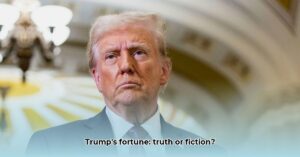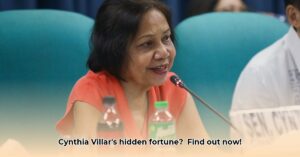Tompolo. The name echoes through Nigeria’s Niger Delta, evoking images of a militant leader turned business magnate. Government Ekpemupolo, as he is formally known, has navigated a complex journey, transitioning from the armed struggle for the Niger Delta’s emancipation to becoming a key player in the region’s economy. But beyond the headlines and controversies, who is Tompolo, and how did he amass such influence? This article delves into the multifaceted story of Government Ekpemupolo, examining his rise through the ranks of MEND, the government amnesty program, his business ventures with Global West Vessel Specialist, and the controversies that have shadowed his career. It aims to offer a comprehensive analysis of Tompolo’s transformation, exploring his impact on the Niger Delta and his enduring legacy as a figure of both power and enigma. For comparison, see how other figures amass wealth like Joel Osteen.
The Evolution of Tompolo: From Militant Commander to Business Titan
The story of Tompolo – Government Ekpemupolo – is inextricably linked to the Niger Delta’s tumultuous history. Emerging as a prominent figure in the Movement for the Emancipation of the Niger Delta (MEND), he became a symbol of resistance against perceived injustices in the oil-rich region. However, the landscape shifted with the introduction of the Nigerian government’s amnesty program, offering a pathway to reintegration and, for some, unprecedented economic opportunities. Tompolo’s transition from militant leader to influential businessman is a subject of intense scrutiny and debate. This article aims to dissect his journey, examining the deals, controversies, and power dynamics that have shaped his trajectory. Understanding his evolution requires an exploration of Niger Delta history and economic transformation in Nigeria.
The Niger Delta Amnesty Program: A Catalyst for Change
The Nigerian government’s amnesty program was designed to quell the violence that had plagued the Niger Delta for years. By offering ex-militants amnesty – including financial incentives, training, and opportunities for integration into civilian life – the government aimed to bring an end to the conflict and restore stability to the region. For Tompolo, this program proved a turning point. It provided a platform for him to leverage his influence and connections, paving the way for his entry into the business world. A crucial element of the amnesty involved awarding contracts to former militant leaders, intending to empower them and contribute to the region’s development. However, this practice also sparked controversy, raising questions about transparency, accountability, and the equitable distribution of resources. The efficacy of amnesty programs worldwide provides a valuable frame of reference.
Global West Vessel Specialist Limited (GWVSL): A Business Empire Under Scrutiny
Global West Vessel Specialist Limited (GWVSL) stands as a cornerstone of Tompolo’s business interests. The company has secured a series of lucrative contracts focused on maritime security and the protection of oil pipelines within the Niger Delta. These contracts, awarded by the Nigerian government, have positioned GWVSL as a key player in the region’s security architecture. While the company’s operations are ostensibly aimed at safeguarding vital infrastructure, concerns have been raised regarding the transparency of its dealings and the potential for conflicts of interest. The precise financial details of GWVSL remain largely opaque, fueling speculation and hindering accurate assessments of Tompolo’s overall wealth. This section examines maritime security challenges in Nigeria and corporate governance in the oil and gas sector.
Dissecting the Estimates: Unveiling Tompolo’s Net Worth
Estimating Tompolo’s net worth is a challenging endeavor that is met with obstacles. A multitude of sources present widely divergent figures, leaving a vast array of estimates that make it difficult to produce an accurate assessment. These estimations tend to vary massively in the tens or hundreds of millions. The lack of publicly available financial documentation and a penchant for secrecy around his businesses further complicate the process, meaning a definitive calculation remains out of reach. The estimates available are often based on speculation and unconfirmed reports. Accurate reporting is difficult without verified information. Analyzing methods of wealth assessment and financial transparency initiatives in Nigeria offers clarity.
The Shadows of Controversy: Allegations and Legal Battles
Tompolo’s career has been dogged by controversy, with allegations of illicit activities and legal battles casting a shadow over his business dealings. Charges of corruption, money laundering, and involvement in oil theft have been leveled against him, although many of these accusations remain unproven in court. These controversies have fueled public skepticism and complicated efforts to assess his true wealth and influence. While Tompolo has consistently denied any wrongdoing, the persistent allegations have contributed to a perception of opacity surrounding his affairs. It’s crucial to examine the impact of corruption on economic development and the role of investigative journalism.
The Wider Picture: Tompolo’s Influence Beyond Business
Tompolo’s sphere of influence extends beyond the financial world. He holds a significant position as a traditional leader, serving as the chief priest of the Egbesu deity, a revered figure within the Ijaw community. His traditional role grants him significant cultural and political leverage in the Niger Delta, further complicating any objective financial assessment, as such cultural power can easily translate into economic benefits. This convergence of traditional authority and business acumen reinforces his standing in the region, making an accurate assessment of his wealth a complex and multifaceted undertaking. He is considered a power broker in the Niger Delta. Exploring the intersection of traditional leadership and economic power and cultural context within wealth accumulation provides deeper insight.
The Quest for Transparency: A Call for Accountability
In conclusion, the precise extent of Tompolo’s wealth remains shrouded in mystery. The lack of transparency, the ongoing controversies, and the complex web of his business interests create significant obstacles in the quest for a definitive answer. His story underscores the broader need for greater accountability and transparency within Nigeria’s post-conflict environment. The call for more robust regulatory oversight and greater financial disclosure is crucial for fostering a more equitable and sustainable future for the Niger Delta. Future transparency into his activities will require more investigations.
The Ripple Effect: The Amnesty Program’s Influence on Tompolo’s Government Contracts
Key Takeaways:
- The 2009 Niger Delta amnesty program played a pivotal role in reshaping Tompolo’s trajectory, facilitating his transition from a prominent militant leader to a government contractor.
- This shift opened doors to lucrative contracts, especially in maritime security. His company, Global West Vessel Specialist Limited (GWVSL), significantly benefited from this transition.
- Questions linger, however, regarding the program’s efficacy in fostering equitable wealth distribution and its potential for unintended consequences.
From Armed Resistance to Government Contracts: The Amnesty Program’s Impact
The 2009 amnesty program was designed to quell the violence and instability that had plagued the Niger Delta for years. However, its impact extended far beyond simply disarming militants. The program also sought to reintegrate ex-combatants into civilian life, offering opportunities for education, training, and employment. A key element of this reintegration strategy involved awarding government contracts to former militant leaders, aiming to empower them and contribute to the region’s development. For Tompolo, this program proved to be transformative. It provided a framework for him to leverage his influence and connections, opening doors to lucrative government contracts and solidifying his position as a key stakeholder in the Niger Delta. A comparative analysis of reintegration programs in post-conflict zones can offer valuable insights.
The Niger Delta Context: A Breeding Ground for Opportunity and Controversy
The Niger Delta’s history is marked by decades of conflict, environmental degradation, and economic exploitation. This complex and often volatile environment created a fertile ground for both opportunity and controversy. The lack of transparency surrounding government contracts in the area compounded these challenges, making it difficult to assess the true value and impact of the amnesty program. Claims of wealth are difficult to substantiate. Understanding the long-term effects of oil exploitation on local communities and strategies for promoting sustainable development provides broader context.
Global West Vessel Specialist Limited (GWVSL): A Case Study in Scrutiny
GWVSL’s securing of significant government contracts following the amnesty program raises questions about transparency and fairness. While the company’s stated mission is to provide maritime security and protect oil pipelines, allegations of corruption and questionable practices have persisted. Did these contracts represent a legitimate means of reintegrating former militants, or did they serve as a vehicle for personal enrichment? The lack of transparency surrounding GWVSL’s operations makes it difficult to answer this question definitively, fueling speculation and undermining public trust. Analyzing the effectiveness of public-private partnerships in security and measures for combating corruption is crucial to understanding the long-term implications.
Unanswered Questions: Transparency, Accountability, and the Delta’s Future
The lack of transparency and accountability surrounding the awarding and execution of government contracts in the Niger Delta prevents definitive conclusions about the amnesty program’s long-term impact. This uncertainty raises concerns about the program’s overall effectiveness and its potential for unintended consequences. Did it genuinely contribute to lasting peace and equitable development, or did it inadvertently create new avenues for elite enrichment and corruption? These questions remain critical to the region’s ongoing stability and future prosperity. Continued investigation is needed.
Decoding Tompolo’s Influence: Political and Economic Dynamics in the Niger Delta
Key Takeaways:
- Tompolo’s evolution from a prominent Niger Delta militant leader to a wealthy businessman illustrates the region’s intricate political and economic dynamics.
- His acquisition of lucrative government contracts, notably in maritime security, is a significant factor in his wealth accumulation.
- The precise magnitude of Tompolo’s wealth remains a



